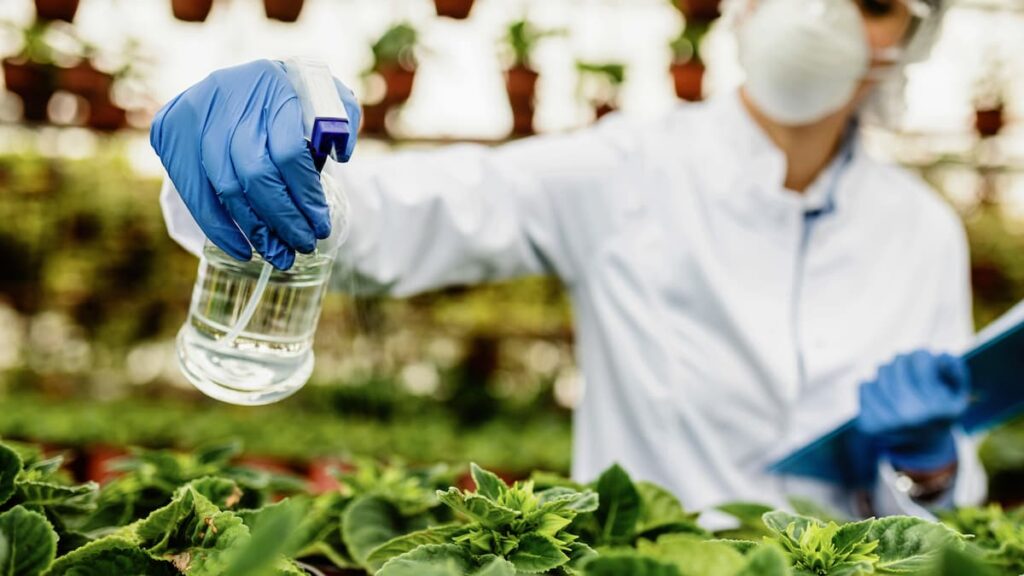India is set to introduce stricter discharge standards in 2025. Here’s what industries need to know and how biological wastewater treatment can help them stay compliant.
Water is one of the most precious resources we have. In India, the rapid pace of industrial growth has put increasing pressure on water bodies, leading to concerns about pollution and sustainability. To address this, the government has announced updated discharge standards that will come into effect in 2025. These rules are designed to reduce the amount of harmful waste entering rivers, lakes, and groundwater.
For industries, this means it’s time to review their wastewater practices and prepare. One solution that stands out is biological wastewater treatment, a natural and effective method for managing pollutants while protecting the environment.
What’s Changing in 2025?
The new discharge standards aim to make sure wastewater from industries meets stricter quality limits before being released into the environment. Parameters such as Biological Oxygen Demand (BOD), Chemical Oxygen Demand (COD), suspended solids, and nutrient levels will now be subject to tighter controls.
This shift impacts all major sectors, including manufacturing, pharmaceuticals, food processing, and textiles. Simply put, industries can no longer afford to rely on outdated treatment systems that only meet basic compliance.
How Does Biological Wastewater Treatment Work?
Here’s where biological wastewater treatment plays a key role. By relying on natural processes and microorganisms, this method offers a sustainable approach to meeting these more stringent norms. Instead of just treating water on the surface, it addresses pollutants at the source, ensuring cleaner and safer discharge.
At its core, biological wastewater treatment processes utilize microorganisms to break down organic matter in water. These tiny organisms feed on pollutants, converting them into simpler, harmless substances such as carbon dioxide, water, and biomass.
The process usually happens in two stages:
- Primary treatment removes large solids through basic screening and sedimentation.
- Secondary treatment, also known as biological treatment in wastewater treatment, handles dissolved and organic matter. This is where microorganisms do the bulk of the work.
Technologies such as activated sludge systems, biofilters, and sequencing batch reactors are commonly used in modern wastewater treatment plants. The result? Treated water that meets regulatory standards while being energy-efficient and cost-effective.
By adopting this method, industries not only comply with regulations but also position themselves for sustainable, long-term operations.
The Hidden Power of Bioremediation
One of the most exciting parts of biological treatment is the bioremediation of wastewater. This technique uses naturally occurring or specially selected microbes to target specific pollutants. For example, certain bacteria can break down oils, pesticides, or heavy metals that would otherwise persist in the environment.
Bioremediation is powerful because it’s adaptable. Each industrial setup can utilize the right microbes for the type of waste it generates. It’s also cost-effective compared to chemical-heavy methods, which often leave behind secondary pollutants.
Most importantly, it supports a sustainable future. Instead of fighting against nature with chemicals, industries can work with it. By embracing bioremediation, wastewater treatment plants can effectively handle even the most challenging pollutants while maintaining compliance with 2025 standards.
Simple Steps Industries Can Take Today
Preparing for 2025 doesn’t need to feel overwhelming. Here are five practical steps industries can start implementing right away:
- Audit your current system: Understand your existing treatment capacity and identify gaps in meeting the upcoming discharge standards.
- Upgrade to biological wastewater treatment: If your system still relies on outdated technology, consider shifting to modern biological treatment methods.
- Explore bioremediation options: Tailor your wastewater solutions by using microbes that best address your industry’s specific waste.
- Train your staff: Skilled operators are crucial for efficient wastewater management. Regular training ensures smooth plant functioning.
- Partner with experts: Collaborate with solution providers who specialize in biological treatment in wastewater treatment and compliance consulting.
These steps not only prepare businesses for compliance but also help them adopt sustainable practices that make economic sense in the long run.
More Than Compliance: The Real Benefits
Meeting regulations is important, but biological wastewater treatment offers more benefits than just compliance. When industries invest in biological process wastewater treatment, they unlock several additional benefits.
- Cost savings: Biological systems often have lower operational costs compared to chemical-intensive alternatives.
- Resource recovery: Some advanced setups enable the recovery of by-products, such as biogas, which can be reused as an energy source.
- Improved brand image: Companies that adopt eco-friendly technologies gain trust among customers and stakeholders.
- Future readiness: Regulations will only get stricter. Industries that act now won’t need frequent overhauls later.
These benefits show that wastewater management isn’t just a legal requirement—it’s also a smart business move.
Moving Forward with Responsible Water Management
As India prepares to enforce its updated discharge standards in 2025, industries must act now to stay ahead. Relying on old systems will not be enough. By adopting biological wastewater treatment and exploring bioremediation of wastewater, businesses can achieve compliance while contributing to a healthier environment.
At the end of the day, wastewater treatment is not just about meeting laws, it’s about safeguarding our future. Cleaner water means healthier communities, sustainable industries, and a stronger nation.
At Amoda Chem, we specialize in helping industries transition smoothly into sustainable water management. Our expertise in biological process wastewater treatment and innovative solutions ensures clients meet regulatory norms while benefiting from efficient and eco-friendly operations. Together, we can build a future where compliance and sustainability are in harmony.

